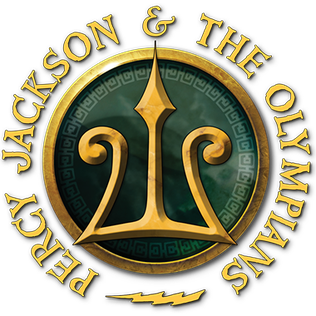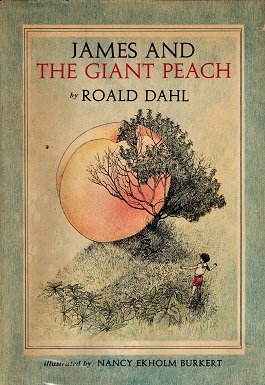Eyvind Johnson
Explore the timeline of Eyvind Johnson, the acclaimed Swedish author and Nobel Laureate. Discover key events, milestones, and works that shaped his literary career and personal life.
Birth of Eyvind Johnson
Eyvind Johnson was born on July 29, 1900, in the village of Svartbjörnsbyn near Boden in Norrbotten County, Sweden. He was the son of Olof P. Johansson and Cevia Gustafsdotter. He would grow up to become one of Sweden's most renowned authors. Johnson's works often depicted themes of social criticism and exploration of the human condition, drawing from personal experiences during his childhood and early adulthood.
Move to France
In 1924, Eyvind Johnson moved to France, a significant period in his life that greatly influenced his writing. It was in France that he absorbed European modernist literature and began to formulate his unique literary style. This experience enriched his worldview and provided him with a broader artistic perspective. During this period, Johnson supported himself with various jobs and his exposure to different European literary currents profoundly shaped his subsequent works.
Debut Novel 'Timans och rättfärdigheten'
In 1927, Eyvind Johnson published his debut novel 'Timans och rättfärdigheten' which marked the beginning of his career as a novelist. This work reflects his early literary style and begins to explore themes that would define much of his later work. The novel's exploration of human struggles and moral questions laid the groundwork for his development as a writer deeply concerned with the ethical issues of modern society.
Publication of 'Krilon Trilogy'
The 'Krilon Trilogy' is one of Eyvind Johnson's most celebrated works. Published in the mid-1930s, the trilogy (consisting of 'Grupp Krilon', 'Krilons resa', and 'Krilon själv') is a significant literary achievement that reflects the tensions and struggles of the time. It’s an allegorical critique of totalitarianism and a defense of democratic ideals, written with an intricate narrative style that blends realism with modernist elements.
Marriage to Cilla Johnson
In 1938, Eyvind Johnson married Cilla Johnson, who would become an important partner in his life. Cilla and Eyvind shared a deep connection that supported his literary career. Their marriage was also a stabilizing aspect in his somewhat wandering lifestyle, which saw him reside in various countries. Significant personal relationships like this had a profound impact on Johnson's writings and personal development.
Publication of 'Return to Ithaca'
Eyvind Johnson published 'Return to Ithaca' in 1946, a novel that reinterprets the classic story of Odysseus's return home. This work reflects Johnson's interest in blending myth with contemporary themes, and it explores the human condition through the lens of classical stories. Johnson's skillful narrative reimagines these age-old themes to comment on post-war humanity and the timeless struggles of man.
Board Member of Svenska PEN
In 1951, Eyvind Johnson became a board member of Svenska PEN, the Swedish branch of the international writers' organization. This position allowed him to contribute to important discussions about literature, freedom of expression, and writers' rights. Johnson was deeply committed to these causes, and his involvement with Svenska PEN is a testament to his dedication to the literary community and human rights.
Elected to Swedish Academy
Eyvind Johnson was elected to the Swedish Academy on April 23, 1953. Membership in this prestigious institution, which awards the Nobel Prize in Literature, marked a significant milestone in his literary career. This recognition also highlighted Johnson's contributions to Swedish literature and cemented his status as an influential literary figure. His election to the academy symbolized a major acknowledgment of his work and intellectual influence.
Nobel Prize in Literature
On October 10, 1974, Eyvind Johnson was awarded the Nobel Prize in Literature alongside fellow Swedish author Harry Martinson. The award was a momentous occasion, recognizing his achievements in literature where his narrative art, far-sighted spirit and ethical integrity stood out. Johnson's extensive body of work, which often dealt with historical and political themes, earned him one of the highest honors in the literary world and gave him international recognition.
Death of Eyvind Johnson
Eyvind Johnson passed away on August 25, 1976, in Stockholm, Sweden. His death marked the end of an illustrious career that had significantly impacted Swedish and world literature. Johnson left behind a rich legacy of novels and essays that continue to be studied and appreciated for their artistic depth and insightful commentary on society. His contributions to literature and his role in promoting democratic ideals through his works remain influential.
Frequently asked questions about Eyvind Johnson
Discover commonly asked questions regarding Eyvind Johnson. If there are any questions we may have overlooked, please let us know.
When was Eyvind Johnson born?
When did Eyvind Johnson receive the Nobel Prize in Literature?
What are some of Eyvind Johnson's most famous works?
Who was Eyvind Johnson?
Related timelines
More timelines connected to Eyvind Johnson







